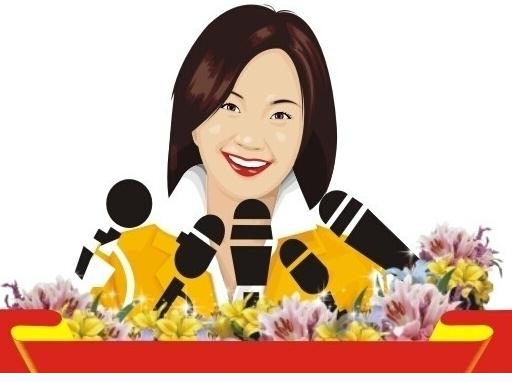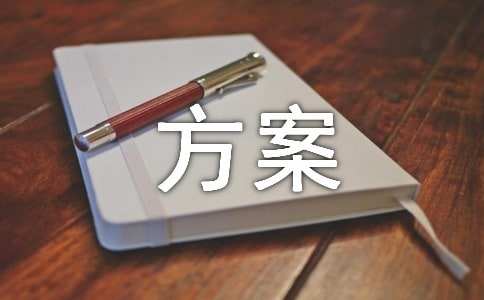学位英语情态动词用法总结 本文关键词:情态,英语,动词,用法,学位
学位英语情态动词用法总结 本文简介:2013年成人英语三级考试情态动词用法总结情态动词用来表示能力、允许、许诺、可能、劝告、意愿等概念或态度。情态动词无人称变化,在句子中和动词原形一起构成谓语。从这几年的考试看,着重测验情态动词接完成时的用法,尤其是与虚拟语气结合来考查学生的掌握情况。另外情态动词表推测也成为今年考查重点,须引起重视。
学位英语情态动词用法总结 本文内容:
2013年成人英语三级考试情态动词用法总结
情态动词用来表示能力、允许、许诺、可能、劝告、意愿等概念或态度。情态动词无人称变化,在句子中和动词原形一起构成谓语。从这几年的考试看,着重测验情态动词接完成时的用法,尤其是与虚拟语气结合来考查学生的掌握情况。另外情态动词表推测也成为今年考查重点,须引起重视。
1.must+完成时
表示对已发生的事情的一种肯定的猜测
例1
Since
this
road
is
wet
and
slippery
this
morning,it
____
last
night.
A.must
rain
B.was
raining
C.must
have
rained
D.may
rain
【答案】C(2004年11月35题)
例
2
I
believe
he
____
an
accident,otherwise
he
would
have
arrived
on
time.
A.would
have
had
B.could
have
had
C.should
have
had
D.must
have
had
【答案】D(2001年58题)
例3
Mr.Green
____
my
letter,otherwise
be
would
have
replied
before
now.
A.must
have
received
B.must
have
failed
to
receive
C.must
receive
D.must
fail
to
receive
【答案】B(1998年44题)
例4
She
___
be
ill
because
I
saw
her
playing
tennis
just
now.A.can′t
B.could′t
C.mustn′t
D.may
not
【答案】A(2005年10月20题)
2、should(ought
to)+完成时
表示应该做的事情而没有做,否定式表示不该做的事情做了。含有对
过去的动作的责备、批评。
例1
You
ought
____
the
matter
to
the
manager
the
day
before
yesterday.
A.oughtn′t
to
go
B.hadn′t
gone
C.shouldn′t
have
gone
D.mustn′have
gone
【答案】C(2006年11月30题)
例2
You
ought
____
the
matter
to
the
manager
the
day
before
yesterday.
A.to
report
B.to
have
reported
C.to
reporting
D.have
reported
【答案】B(2003年11月36题)
例3
I′m
sorry
I
couldn′t
get
in
touch
with
him
before
be
left,I
____
him
earlier.
A.had
a
telephone
B.have
phoned
C.should
have
phoned
D.should
be
phoned
【答案】C(2000年26题)
2.could/might
+
完成时
表示能做的事情而没有做。表示对过去能做而未做的事情感到惋惜、遗憾。
例1
He
could
have
joined
us,but
he
didn′t
get
our
invitation
in
time.
他本来能够和我们在一起,但是他没有及时收到我们的请柬。
例2
He
might
have
given
you
more
help,but
he
was
busy
then.
他本来可以给你更多帮助的,但他那时很忙。
例3
He
abandoned
a
career
that
_____
to
his
becoming
one
of
the
most
influential
people
in
the
world.
A.could
have
led
B.would
lead
C.should
have
led
D.must
lead
【答案】A(2005年11月33题)
(五)主谓一致
1、名词physics“物理”,maths“数学”,news“新闻”,means“方法”等一般被认为是形式上是复数、而意思上是单数的名词,它们作主语的时候动词一般用单数形式。
2、当主语由as
well
as,along
with,together
with,including,accompanied
by
等短语+名词(代词)时,主语与谓语的一致关系不受影响,主语是单数名词时,谓语动词用单数形式,主语是复数形式时,谓语动词用复数。
例1
Professor
Smith,along
with
his
assistants,____
on
the
project
day
and
night
to
meet
the
deadline,
A.work
B.working
C.is
working
D.are
working
【答案】C
(2007年4月37题)
例2
The
teacher,as
well
as
all
his
students,____
by
the
dancer′s
performance.
A.was
impressed
B.had
impressed
C.impressed
vv
D.were
impressed
【答案】A(2006年4月42题)
例3
Mr.Smith,together
with
his
wife
and
children,____
going
to
the
party
this
weekend.
A.am
B.is
C.are
D.will
【答案】B(2004年11月28题)
3、当用and连接的名词前有each,every等修饰时,谓语动词用单数。当主语是each…and…,every…and
every…,many
a
…and…
机构时,谓语动词用单数。
例1
Many
a
singer
and
dancer
is
to
attend
our
evening
party.
许多歌唱家和舞蹈家将参加我们的晚会。
例2
In
our
country
every
boy
and
every
girl
has
the
right
to
receive
education.
在我们国家每个人都有接受教育的权利。
4、就近原则
由or,not
only…but
also…,either…or…,neither…nor…连接两个并列的主语时,谓语的数和最邻近的主语一致。
例1
Either
you
or
I
am
right.
不是你对就是我对。
例2
Not
only
Jane
but
also
her
family
members
were
friendly
to
me.不仅是简,她的家人对我也很好。
篇2:情态动词归纳总结
情态动词归纳总结 本文关键词:情态,动词,归纳
情态动词归纳总结 本文简介:情态动词归纳总结1.must与havetohaveto强调客观需要,must着重主观看法。另外haveto能用于更多时态,比较下面的句子:Wehadtobethereat10:00.有时两者都可以用,意思差别不大。e.g.Wemust/havetoleavenow.1)must“一定”或“准是”。(
情态动词归纳总结 本文内容:
情态动词归纳总结
1.
must与have
to
have
to强调客观需要,must着重主观看法。另外have
to能用于更多时态,比较下面的句子:
We
had
to
be
there
at
10:00.
有时两者都可以用,意思差别不大。
e.
g.
We
must/have
to
leave
now.
1)must
“一定”或“准是”。(只有在肯定句中能这样用。)
This
must
be
your
room.
2)回答由must(“必须”)引起的问题,否定回答needn’t或don’t
have
to
You
mustn’t
touch
the
fire.
mustn’t“禁止,不准”
Eg:---Must
we
finish
the
work
tomorrow?
---No,you
needn’t
(don’t
have
to),but
you
must
finish
it
in
three
days.
3)
表示“偏要,硬要”
If
you
must
go
with
me,I
will
have
nothing
to
do
but
agree.
4)表示坚定的建议。
Eg:You
mustn’t
miss
the
film.
It
is
very
good.
2.
may的用法:
1)
表示“允许”或“请求”。
eg.
May
I
come
in?
在使用这一用法时需注意:
may表示“允许”的否定形式must
not或can
not意思是“不应该”
“不许可”。
eg.
—May
I
take
this
book
out
of
the
reading-room?
—No,you
mustn’t/can’t.
2)表示说话人的猜测,认为某一事情“或许”或“可能”发生。
Eg:
He
may
know
the
answer.
He
may
not
know
the
answer
He
can
not
know
the
answer
3)
may用在感叹句中可表示祝愿、愿望。
eg:
May
you
succeed.(祝你成功。)
注意:may
well
+v.
=
be
very
likely
to
do
很可能,能
may
as
well
+
v.
=
had
better/have
no
strong
reason
not
to,意为“最好;满可以;倒不如”
Eg:Her
appearance
has
changed
so
much
that
you
may
well
recognize
her.
You
may
as
well
do
it
at
once.
3.
should是shall的过去式
1)表示义务和责任
Eg:You
should
do
what
your
parents
tell
you.
You
should
answer
my
question
in
English.
2)
表示猜测,推测
Eg:This
book
should
be
published
in
two
months.
3)
表示惊讶、失望、出乎意料等,常意为竟然。
Eg:It
seems
so
unfair
that
this
should
happen
to
me.
4)用于虚拟语气。
Eg:If
it
had
not
been
for
the
doctor’s
care,the
girl
should
not
be
speaking
to
you
now.
I
suggest
that
you
should
stay
here.
5)
用于第一人称疑问句,表征询意见
eg:
Should
I
help
you
carry
the
basket?
What
should
I
do
for
them?
我应当为他们做些什么?
6)用于if条件句中,表示“万一”
Eg:
If
you
should
see
her,please
tell
her
I
have
known
the
truth.
4.shall
的用法
1)用于第一、三人称疑问句,表示说话人征求对方的意见或向对方请示。
Eg:Shall
we
begin
at
once?
Shall
they
wait
here
or
outside?
2)用于第二、三人称陈述句,表示说话人给对方的命令、警告、允诺、决心或威胁。
Eg:You
shall
fail
if
you
don’t
work
harder.
Everything
he
has
shall
be
taken
away.
You
shall
get
what
you
want
if
you
follow
me.
3)用于所有人称,表示规章、法规、法令、预言等,可译为“必须”。
eg:
This
law
shall
come
into
effect
on
May
1st.
5.
情态动词will
1)
在疑问句中用于第二人称前,表示请求或询问对方的意见。
eg:
Will/would
you
pass
the
salt?
请你把盐递给我,好吗?
Won’t
you
come
in
and
have
a
little
tea?
2)表示“主观意志”或“决心”。
Eg:I
have
told
him
again
and
again
to
stop
smoking,but
he
will
not
listen.
If
you
will,I
will
put
on
the
coat
for
you
before
mirror
3)
可以表示一种习惯性的动作,有“总是;会要”的意思。
Eg:Every
morning
he
will
have
a
walk
along
this
river.
4)
表示命令(说话者确信一定会得到执行)或允诺。
Eg:They
will
get
enough
money
from
me.
You’ll
report
to
me
afterwards.
6.
can
(could)
1)表示能力,could主要指过去时间。
Two
eyes
can
see
more
than
one.
两只眼比一只眼看得清。
Could
the
girl
read
before
she
went
to
school?
2)可能(注意:多用于否定句和疑问句中,表示主观认为的可能性)。
He
can′t
(couldn′t)
have
enough
money
for
a
new
car.
----Who
can
the
person
in
blue
be?
----It
may
be
Mr.
White
Walking
in
the
jungle
can
be
dangerous.
(客观上的可能性)
在林子里走时勿吸烟,那样可能会引起火灾。
3)表示征求同意。
Can/Could
I
have
a
look
at
your
new
pen?
He
asked
whether
he
could
take
the
book
out
of
the
reading—room.
他问他可不可以把书带出阅览室。
4)表惊异、怀疑、不相信等态度。主要用于否定句、疑问句或感叹句中。
Where
can
(could)
they
have
gone
to?
他们会去哪儿呢?
He
can′t
(couldn′t)
be
over
sixty.
他不可能超过六十岁。
How
can
you
be
so
careless?
你怎么这么粗心?
5)比较委婉客气地提出问题或陈述看法。
Can
(Could)
you
lend
me
a
hand?
帮我一把好吗?
I′m
afraid
we
couldn′t
give
you
an
answer
today.
恐怕我们今天不能给你答复。
can
和be
able
to
1)情态动词can只有两种时态形式,can,could;be
able
to有多种时态形式,而且侧重于表示能力。
Mary
can
play
the
piano.
She
has
been
able
to
play
it
since
she
was
5.
玛丽会弹钢琴。她五岁起就会弹了。
2)在过去时中,could经常表示能够做某事,事实上不一定去做,而was∕were
able
to表示“过去做成了某事”。在否定句中两者可通用。
Yesterday
I
was
able
to
get
home
before
the
heavy
rain.
7.would
1)表意愿。
They
would
not
let
him
in
because
he
was
poorly
dressed.
2)表委婉地提出请求、建议或看法。
Would
you
mind
cleaning
the
window?
They
wouldn′t
have
anything
against
it.
3)表过去反复发生的动作或过去的一种倾向。
Every
time
she
was
in
trouble,she
would
go
to
him
for
help.
8.
ought
to
1)“应该”(因责任、义务等该做),口气比should重。
You
oughtn′t
to
smoke
so
much.
你不应该抽这么多烟。
2)表推测,暗含很大的可能,语气较弱。
Han
Mei
ought
to
know
his
telephone
number.
There′s
a
fine
sunset;
it
ought
to
be
a
fine
day
tomorrow.
今天有晚霞,明天应该是个好天。
9.
used
to
表示过去的习惯动作或状态,现在不复发生或存在。
There
used
to
be
a
building
at
the
street
corner,but
it
has
been
pulled
down.
I
usedn′t
(didn′t
use)
to
smoke.
我过去不抽烟。
10.
need和dare的用法
用作情态动词时,主要用于否定句和疑问句。用作实义动词时,可用于各种句式。
1.用作情态动词
--Need
I
come?
--Yes,you
must.
You
needn′t
telephone
him
now.
She
dare
not
go
out
alone
at
night.
How
dare
you
say
I′m
unfair?
Not
one
of
them
dared
mention
this.
2.用作实义动词
(I
dare
say…为固定习语)
You
don′t
need
to
do
it
yourself.
你不必亲自做这件事。
We
need
to
tell
them
the
news.
我们需要把这消息告诉他们。
The
table
needs
painting
(to
be
painted.).
He
did
not
dare
(to)
look
up.
他不敢抬头看。
I
dare
say
he′ll
come
again.
我想他会再来的。
情态动词后跟完成式和进行式的用法
1.情态动词后跟完成式,表“应当已经……”,“想必已经……”,“本来可以……”等意。
I
should
have
finished
the
work
earlier.
我应当早一点完成这项工作的。
He
isn′t
here.
He
must
have
missed
the
train.
他还未到,一定是没赶上火车。
Where
can
(could)
he
have
gone?
他能到那里去了呢?
You
may
(might)
have
read
about
it.
你可能在报上已经读到这件事了。
You
could
(might)
have
been
more
careful.
你本来可以更细心的。
He
needn′t
have
worried
about
it.
他本不必为此事担心。
There
was
a
lot
of
fun
at
yesterday
s
party.
You
ought
to
have
come,but
why
didn
t
you?
昨天的聚会非常有意思。你本应该来,为何不来呢?
2.
情态动词后跟进行式,表示“想必正在……”,“可能正在……”,“应当正在”等意。
It′s
twelve
o
clock.
They
must
be
having
lunch.
现在是十二点。他们一定正在吃饭。
They
may
be
discussing
this
problem.
他们可能正在论讨这个问题。
He
can
t
be
telling
the
truth.
他说的不可能是真话。
She
shouldn
t
be
working
like
that.
She
s
still
so
weak.
她不应当那样干,她身体仍那么虚。
Self-check
1.
I
am
not
sure,but
I
think
Bob
____
come
to
see
me
today.
2.Developed
countries
think
that
developing
countries
____
accept
globalization.
3.
If
you
need
any
help,I
____
be
the
first
one
to
give
it
to
you.
5.
All
of
us
______
learn
to
be
polite
and
should
not
smoke
or
talk
loudly
in
a
public
place.
6.
Let’s
get
everything
ready
now.
Our
guests
___
come
at
any
time
from
now
on.
7.
Look,the
light
is
on.
Bob
____
be
in
the
room
now.
8.
I
hope
John
____
come
tomorrow.
I
have
something
important
to
tell
him.
9.
Adults
______
not
be
rude
to
children.
Otherwise,they
___
be
rude
to
adults.
10.
I
saw
Mary
in
the
bookstore
a
few
minutes
ago.
She
____
be
in
the
classroom
now.
1.
In
crowded
places
like
airports
and
railway
stations,you
____
take
care
of
your
luggage.
(2007北京卷)
A.
can
B.
may
C.
must
D.
will
2.
---
How
is
your
tour
around
the
North
Lake?
Is
it
beautiful?
---
It
________
be,but
it
is
now
heavily
polluted.
A.
will
B.
would
C.
should
D.
must
3.
—She
looks
very
happy.
She
______
have
passed
the
exam.
—I
guess
so.
It’s
not
difficult
after
all.
(2007)
A.
shouldB.
couldC.
mustD.
might
4.
—How
is
your
tour
around
the
North
Lake,is
it
beautiful?
—It
______
be,but
it
is
now
heavily
polluted.
(2007)
A.
will
B.
would
C.
should
D.
must
5.
They
have
arrived
at
lunchtime
but
their
flight
was
delayed.
A.
will
B.
can
C.
must
D.
should
6.If
you
smoke,please
go
outside.
A.
can
B.
should
C.
must
D.
may
7.
—I
don’t
really
like
James.
Why
did
you
invite
him?
—Don’t
worry.
He
come.
He
said
he
wasn’t
certain
what
his
plans
were.
A.
must
not
B.
need
not
C.
would
not
D.
might
not
8.
Some
young
people
these
days
just
___
go
out
of
their
homes
to
contact
the
real
world.
A.
mustn’tB.
won’tC.
mightn’tD.
shouldn’t
9.---Why
didn’t
you
come
to
Simon’s
party
last
night?
---
I
wanted
to,but
my
mom
simply
___
not
let
me
out
so
late
at
night.
A.
could
B.
might
C.
would
D.
should
10.
No
one
_____
be
compared
with
Yao
Ming
in
playing
basketball.
A.
can
B.
need
C.
must
D.
might
11.
——Will
you
read
me
a
story,Mummy?
——OK.
You
______have
one
if
you
go
to
bed
as
soon
as
possible.
A.
might
B.
must
C.
could
D.
shall
12.
I_______through
that
bitter
period
without
your
generous
help.
A.
couldn’t
have
gone
B.
didn’t
go
C.
wouldn’t
go
D.
hadn’t
gone
13.
——Shall
I
inform
him
of
the
change
of
the
schedule
right
now?
——I
am
afraid
you,in
case
he
comes
late
for
the
meeting
.
A.
will
B.
must
C.
may
D.
can
4
篇3:20XX高考英语二轮复习方案专题限时训练情态动词与虚拟语气、非谓语动词、复合句
2014高考英语二轮复习方案专题限时训练情态动词与虚拟语气、非谓语动词、复合句 本文关键词:动词,复合句,情态,限时,语气
2014高考英语二轮复习方案专题限时训练情态动词与虚拟语气、非谓语动词、复合句 本文简介:专项限时训练(十一)[情态动词与虚拟语气、非谓语动词、复合句](限时:每篇5分钟)一、情态动词与虚拟语气考点Iamamiddleschoolstudent.Ihavemanydreams.Ifthere1.________(be)notsomuchhomework,Iwouldhavemoretim
2014高考英语二轮复习方案专题限时训练情态动词与虚拟语气、非谓语动词、复合句 本文内容:
专项限时训练(十一)
[情态动词与虚拟语气、非谓语动词、复合句]
(限时:每篇5分钟)
一、情态动词与虚拟语气考点
I
am
a
middle
school
student.
I
have
many
dreams.
If
there
1.________
(be)
not
so
much
homework,I
would
have
more
time
to
do
what
I
like
to
do.
How
I
wish
I
2.________
(listen)
to
my
favourite
music
for
an
hour
a
day
and
3.________
(play)
table
tennis
for
an
hour
in
the
morning.
It
s
my
desire
that
we
4.________
(hold)
evening
parties
or
5.________
(organize)
some
interesting
activities
at
weekend.
I
suggest
that
there
6.________
(be)
not
so
many
tests.
You
can
imagine
what
life
7.________
(will)
be
if
I8.________
(realize)
my
dream.
But
I
must
face
the
exams.
Without
good
marks,I
9.________
(will)
not
enter
my
ideal
university.
Anyway,it
s
high
time
that
I
10.________
(encourage)
myself
and
worked
hard
from
now
on.
二、不定式考点
Dear
Editors,
My
name
is
Adam
Rouse.
I
m
19
years
old
and
I
used
1.________
(be)
a
heavy
smoker.
I
first
started
2.________
(smoke)
when
I
was
only
15
although
I
know
it
is
very
harmful
3.________
(smoke)
at
any
time.
I
read
your
magazine
and
know
that
there
are
some
organizations
4.________
(help)people
stop
smoking.
Participants
learn
5.________
(recognise)
smoking
triggers
and
they
try
6.________
(set)
a
date
in
the
future
when
they
will
stop
7.________
(smoke)on
purpose.
Now,I
am
looking
for
some
ideas
8.________
(help)
myself
9.________
(give)
up
smoking
and
I
expect
myself
10.________
(accept)
as
a
member
of
your
organizations.
Yours
sincerely,
Li
Lei
三、分词考点
Many
years
ago,a
young
foreigner
1.________
(call)
Marco
Polo
travelled
all
the
way
from
Italy
to
China.
From
then
on
a
window
to
the
east
has
been
2.________
(open)
for
westerners.
Two
kinds
of
gold
coins
once
3.________
(make)
by
Europeans
showed
their
respects
to
the
great
explorer.
Marco
Polo
was
4.________
(bear)
in
1254.
He
lived
in
Venice,a
rich
city
in
Italy.
Marco
s
father
and
uncle
were
merchants.
They
had
travelled
to
the
east.
So
when
Marco
was
young,he
enjoyed
5.________
(listen)
to
the
stories
about
the
places
6.________
(visit)
by
his
father.
His
father
decided
7.________
(take)
him
on
a
trip.
When
Marco
Polo
was
just
17,he
left
his
country
for
China.
They
were
among
the
first
to
go
along
the
silk
road.
They
had
a
lot
of
trouble
in
8.________(explore).
So
it
was
a
hard
trip
for
Marco
Polo,but
he
was
very
brave.
After
about
four
years,Marco
met
Kublai
Khan
who
gave
him
a
job.
Marco
spent
17
years
9.________
(work)
for
him.
He
visited
most
parts
of
China.
He
learned
lots
of
10.________
(interest)
things
about
Chinese
life.
When
he
returned
home,he
let
others
know
about
things
like
coal
and
paper
money.
He
wrote
about
his
trip
in
a
famous
book.
四、动名词考点
Everyone
needs
friends.
There
is
an
old
1.________
(say):
friends
are
God
s
way
of
2.________
(take)
care
of
us.
But
how
do
you
find
real
friendship
and
keep
it?
The
Care
and
Keeping
of
Friends
by
American
author
Sally
Seamans
tells
young
students
some
smart
ways
of
3.________
(find)
friends.
Sally
says
4.________
(arrive)
at
friendship
is
just
like
5.________
(plant)
a
tree.
You
plant
the
seed
and
take
care
of
it
to
make
it
grow.
First,you
should
choose
a
friend.
What
makes
a
good
friend?
It
is
not
because
a
person
has
money
or
good
looks.
A
good
friend
should
be
kind
and
patient.
For
example,if
you
have
a
hard
day,a
good
friend
should
listen
to
your
complaints
and
do
their
best
6.________
(help).
To
make
a
friend,you
cannot
be
too
shy.
You
should
make
each
other
happy
and
share
your
life.
But
things
can
t
always
be
happy.
Even
the
best
friends
have
fights.
What
should
you
do
when
you
have
a
fight
with
your
friends?
You
have
to
talk
to
them.
When
there
is
no
one
around,have
an
honest
talk.
If
he
or
she
doesn
t
want
7.________
(talk),you
could
write
a
letter.
Sally
says
there
are
three
steps
to
8.________
(be)
friends
again.
Tell
him
or
her
how
you
are
feeling,say
what
your
friend
has
done
wrong,and
explain
why
you
did
this
or
that.
The
book
also
has
advice
on
some
small
but
important
things
like
9.________
(celebrate)
your
friends
success.
Even
if
you
haven
t
had
a
real
friend
before,you
will
start
10.________
(think)
of
having
one
if
you
read
this
book,because
the
book
tells
that
friendship
is
the
most
important
thing
in
your
life.
五、名词性从句考点
Three
years
had
passed
and
things
were
even
worse
than
before.
One
can
hardly
imagine
1.________
the
poor
people
suffered.
Most
of
the
workers
lost
their
jobs
and
in
order
to
provide
for
their
families
they
sold
everything
2.________
they
had
in
their
houses.
They
could
neither
get
food
nor
clothing.
Many
of
them
fell
ill
and
died.
Now
they
began
to
understand
3.________
the
factory
owners
were
their
enemies.
But
they
believed
that
4.________
the
government
knew
5.________
hard
their
conditions
were,they
would
give
them
some
help.
In
a
meeting
they
decided
6.________
they
should
send
some
of
their
men
to
London
to
tell
the
government
of
the
truth.
Jackson
was
chosen
to
be
one
of
them
to
go
to
the
capital.
He
felt
proud
7.________
he
could
do
something
for
his
friends.
A
few
days
later,when
Jackson
came
back
from
London
and
was
asked
to
tell
about
8.________
had
happened
there,he
replied
in
a
low
voice,“I
will
never
forget
9.________
we
workers
were
treated
there,and
I
will
never
forgive
those
who
refused
to
hear
us.
Friends,let
us
do
all
we
can
to
struggle
against
the
capitalists
and
the
government
10.________
supports
them.”
六、定语从句考点
Some
day,if
you
are
lucky,you
may
see
a
bongo.
But
the
only
way
1.________
most
people
will
see
it
is
in
a
zoo.
They
are
found
in
Africa,2.________
they
lived
deep
in
forests.
Even
in
Africa,very
few
people
ever
get
to
see
a
bongo.
The
bongo
does
not
come
out
of
the
forest
very
often.
It
is
an
animal
3.________
keeps
to
itself.
The
bongo
has
beautiful
colouring.
Its
hair
is
bright
brown
mixed
with
orange
and
red.
Down
its
back
and
across
its
sides
the
bongo
has
yellow-white
strips.
Animals
4.________
look
for
food
at
night
usually
have
big
eyes.
This
helps
them
see
better
at
night.
The
forests
in
5.________
bongos
live
are
very
dark.
The
eyes
of
bongos
are
very
big.
So,they
have
not
trouble
in
living
in
the
darkness.
Bongos
in
zoos
do
not
like
to
go
outside
on
bright
days.
They
only
go
outside
on
those
days
when
it
is
dark
or
very
cloudy.
七、状语从句考点
Two
travelling
angels
stopped
to
spend
the
night
in
the
home
of
a
wealthy
family.
The
family
was
rude
and
refused
to
let
the
angels
stay
in
the
mansion
s
guestroom.
Instead
the
angels
were
given
a
small
space
in
the
cold
basement.
1.________
they
made
their
bed
on
the
hard
floor,the
older
angel
saw
a
hole
in
the
wall
and
repaired
it.
When
the
younger
angel
asked
2.________,
the
older
angel
replied,“Things
aren
t
always
3.________they
seem.”
The
next
night
the
pair
came
to
rest
at
the
house
of
a
very
poor,4.________
very
hospitable
farmer
and
his
wife.
After
sharing
what
little
food
they
had,the
couple
let
the
angels
sleep
in
their
bed
5.________
they
could
have
a
good
night
s
rest.
6.________
the
sun
came
up
the
next
morning
the
angels
found
the
farmer
and
his
wife
in
tears.
Their
only
cow,7.________milk
had
been
their
sole
income,lay
dead
in
the
field.
The
younger
angel
was
infuriated
and
asked
the
older
angel,“How
could
you
have
let
this
happen?”
“The
first
man
had
everything,yet
you
helped
him,”
she
accused.
“The
second
family
had
little
8.________
was
willing
to
share
everything
and
you
let
the
cow
die.”
“Things
aren
t
always
what
they
seem,”
the
older
angel
replied.“9.________
we
stayed
in
the
basement
of
the
mansion,I
noticed
there
was
gold
stored
in
the
hole
in
the
wall.
10.________
the
owner
was
so
obsessed
with
greed
and
unwilling
to
share
his
good
fortune,I
sealed
the
wall
and
he
wouldn
t
find
it.
Then
last
night
as
we
slept
in
the
farmer
s
bed,the
angel
of
death
came
to
his
wife.
I
asked
God
if
the
angel
could
take
the
cow
instead.”
八、复合句考点
Gandhi
was
honoured
as
the
father
of
the
Indian
nation.
He
has
been
respected
and
beloved
by
the
Indians
with
the
belief
1.________
he
is
an
Indian
national
hero.
He
was
born
in
India
in
1869.
2.________
is
recorded,he
got
married
at
the
age
of
13,following
the
local
custom.
In
1888
he
sailed
to
England,3.________
he
studied
law
for
three
years
and
became
a
lawyer.
4.________
his
return
to
India,he
was
sent
to
South
Africa
to
work
on
a
law
case.
In
South
Africa
he
was
surprised
to
find
5.________
the
problem
of
racial
discrimination
was
serious.
There
he
formed
an
organization
and
this
was
6.________
he
started
to
fight
for
equal
rights.
Gandhi
returned
to
India
in
1915,7.________
India
was
controlled
by
the
British.
He
led
the
Indians
to
fight
for
an
end
to
the
British
rule
and
independence
for
his
country.
8.________
in
the
political
movement
many
Indians
including
Gandhi
were
put
in
prison
and
it
was
still
not
sure9.________
they
could
gain
independence,the
struggles
never
stopped.
The
British
government
had
to
give
in
and
India
won
its
independence
in
1947.
Unfortunately,Gandhi
was
shot
by
an
Indian
10.________
opposed
his
views
and
died
on
January
30th,1948.班
级____________
姓
名____________
专项限时训练(十一)
一、情态动词与虚拟语气考点
1.were
2.listened
3.played
4.(should)
hold
5.(should)
organize
6.(should)
be
7.would
8.realized/
should
realize/
were
to
realize
9.would
10.encouraged
二、不定式考点
1.to
be
2.smoking/to
smoke
3.to
smoke
4.to
help
5.to
recognise
6.to
set
7.smoking
8.to
help
9.(to)give
10.to
be
accepted
三、分词考点
1.called
2.opened
3.made
4.born
5.listening
6.visited
7.to
take
8.exploring
9.working
10.interesting
四、动名词考点
1.saying
2.taking
3.finding
4.arriving
5.planting
6.to
help
7.to
talk
8.being
9.celebrating
10.thinking/to
think
五、名词性从句考点
1.how
2.that
3.that
4.if
5.how
6.that
7.that
8.what
9.how
10.that
六、定语从句考点
1.that
2.where
3.that/which
4.that/which
5.which
七、状语从句考点
1.As/When
2.why
3.what
4.but
5.where
6.When
7.whose
8.but
9.When
10.Since/Because
八、复合句考点
1.that
2.As
3.where
4.On/After
5.that
6.how
7.when
8.Though/Although
9.whether
10.who





